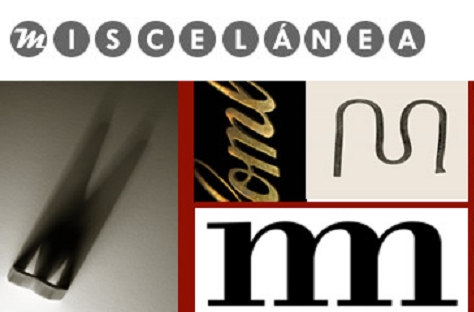"Truth is Held in Disrepute": O. Henry and the Dismantling of Paradigms
DOI:
https://doi.org/10.26754/ojs_misc/mj.20089719Palabras clave:
O. Henry, Relato, Género narrativo, Parodia, Darwinismo social, PosmodernismoResumen
Dominado por la desestabilizacién de todos los principios y el cuestionamiento de las creencias mas sdlidas, el conflictivo panorama de la Era Progresista Americana se caracteriza por el declive de las tradiciones dominantes. En este contexto ideolégico la ficcién breve de O. Henry puede analizarse como un espacio discursivo donde se subvierten o interrogan las categorias darwinistas, el rol de la mujer o las reglas formales del género narrativo. Tomando como base la teoria de Boris M. Ejxenbaum (1927) de que el uso consciente que el escritor hace de la parodia tiene como función enfatizar el caracter artificioso de los elementos estructurales de sus relatos, mi objetivo es demostrar en ultima instancia que, detras del sinfin de férmulas literarias empleadas por el narrador, se esconde la ruptura deliberada de cualquier expectativa genérica que pudiera formarse el lector. Los dictados evolucionistas también son desautorizados, pues, lejos de apoyar ideas eugenésicas, los finales muestran una clara prevalencia de elementos disgenésicos en la sociedad americana. Por ultimo, la clasificaci6n sociolégica binaria (primitivos vs. barbaros) de Veblen (1899) tampoco es titil para predecir las respuestas de los personajes de O. Henry en la lucha por la supervivencia.
Descargas
Referencias
ANON. 1923. “Paris and Parasites”. New York Times, The Screen, 2 October: 7.
BAILEY, Dale. 1999. American Nightmares: The Haunted House Formula in American Popular Fiction. Bowling Green: Bowling Green State University Popular Press.
BAUDRILLARD, Jean. 1998. “Simulacra and Simulations”. In Mark Poster. (ed.). Selected Writings. Palo Alto: Stanford University: 166-184.
BEEBEE, Thomas O. 1994. The Ideology of Genre. A Comparative Study of Generic Instability. University Park: The Pennsylvania State U.P.
BREMMER, Robert H. 1956. From the Depths: The Discovery of Poverty in the U. S. New York: New York U.P.
BROWN, Carolyn S. 1987. The Tall Tale in American Folklore and Literature. Knoxville: The University of Tennessee Press.
CURRENT-GARCIA, Eugene. 1965. O. Henry. (William Sydney Porter). Boston: Twayne.
ÉJXENBAUM, Boris M. (1927) 1968. “O. Henry and the Theory of the Short Story”. Trans. I. R. Titunik. In Matejka, Ladislav and Krystyna Pomorska. (eds.). Readings in Russian Poetics, Formalist and Structuralist Views. Ann Arbor, Michigan: University of Michigan Press: 227-270.
ELLIS, Havelock. 1911. The Problem of Race-Regeneration. New York: Moffat, Yard.
EVANS, Walter. 1981. “‘A Municipal Report’: O. Henry and Postmodernism”. Tennessee Studies in Literature, XXVI: 101-116.
FLYNT, Josiah. 1907. Tramping with Tramps. New York: The Century Co.
GRIMSTED, David. 1968. Melodrama Unveiled. American Theater and Culture 1800-1850. Berkeley University of California Press.
GUNNING, Tom. 1994. “The Horror of Opacity. The Melodrama of Sensation in the Plays of André de Lorde”. In Bratton, Jacky, Jim Cook and Christine Gledhill. (eds). Melodrama: Stage Picture Screen. London: BFI: 50-61.
HAZARD, Lucy Lockwood. 1927. The Frontier in American Literature. New York: Thomas Y. Crowell.
HENRY, O. 1953. The Complete Works of O. Henry. II Vols. Garden City, New York: Doubleday.
HEILMAN, Robert Bechtold. 1968. Tragedy and Melodrama. Versions of Experience. Seattle & London: University of Washington Press.
HUNTER, Robert. 1912. Poverty. New York: MacMillan.
HUTCHEON, Linda. 2000. A Theory of Parody: the Teachings of Twentieth Century Art Forms. Champaign, Illinois: University of Illinois Press.
JUST, Martin-Christoph. 1997. Visions of Evil. Origins of Violence in the English Gothic Novel. Frankfurt am Main, Berlin: Peter Lang.
LANDOW, George P. 1982. Images of Crisis: Literary Iconology, 1750 to the Present. Boston & London: Routledge & Kegan Paul.
LANDFORD, Gerald. 1957. Alias O. Henry. A Biography of William Sidney Porter. New York: Macmillan.
LEARS, T. J. Jackson. 1983. “From Salvation to Self-Realization: Advertising and the Therapeutic Roots of Consumer Culture, 1880- 1930”. In Wightman Fox, Richard, and T.J. Jackson Lears. (eds.). The Culture of Consumption: Critical Essays in American History 1880-1980. New York: Pantheon: 1-38.
LYELL, Charles. (1830-1833) 1997. Principles of Geology. London: Penguin.
LOEWENBERG, James. 1935. “The Controversy over Evolution in New England 1859-1873”. The New England Quarterly, 8 (2): 232-257.
NUMBERS, Ronald L. and Lester J. D. Stephens. 1999. “Darwinism in the American South”. In
Numbers, Ronald L. and John Stenhouse. (eds.). Disseminating Darwinism. Cambridge: Cambridge U.P.
O’CONNOR, Richard. 1970. O. Henry. The Legendary Life of William S. Porter. Garden City, New York: Doubleday.
PATTEE, Frederick Lewis. 1923. The Development of the American Short Story. Harper: New York and London.
PIMPARE, Stephen. 2004. New Victorians. Poverty, Politics, and Propaganda in Two Gilded Ages. New York, London: The New Press.
PITTENGER, Mark. 1997. “A World of Difference: Constructing the ‘Underclass’ in Progressive America”. American Quarterly, 49 (1): 26-65.
QUINN, Arthur Hobson. 1936. “The Journalists”. American Fiction: An Historical and Critical Survey. Appleton-Century-Crofts: 521-549.
RAFTER, Nicole Hahn. 1988. White Trash. The Eugenic Family Studies 1877-1919. Boston: Northeastern U.P.
RUSE, Michael. 2000. The Evolution Wars. A Guide to the Debates. Santa Barbara: ABCCLIO.
SPARIOSU, Mihai. 1987. “Allegory, Hermeneutics, and Postmodernism”. In Calinescu, Malei and David Fokkema. (eds.). Exploring Postmodernism. Amsterdam, Philadelphia: John Benjamim’s: 59-78.
SPENGLER, Oswald. (1932) 1980. The Decline of the West. Trans. Charles Francis Atkinson. New York: Alfred A. Knopf.
SPENSER, Herbert. (1862) 1920. First Principles. New York: D. Appleton.
STANTON, Elizabeth Cady. 2006. “Solitude of Self”. In Schwehn, Mark and Dorothy C. Bass. (eds.). Leading the Lives that Matter: What We Should Do and Who We Should Be. Grand Rapids, Michigan: William B. Eerdman Publishing: 59-64.
STRAUSS, Anslem L. 1961. Images of the American City. New York: The Free Press of Glencoe.
STUART, David. 1990. O. Henry. A Biography of William Sydney Porter. Chelsea: Scarborough House.
SUSMAN, Warren I. 1984. Culture as History. The Transformation of American Society in the Twentieth Century. New York: Pantheon Books, 1984.
TUCKER, William H. 1994. The Science and Politics of Racial Research. Urbana and Chicago: University of Illinois Press.
VEBLEN, Thorstein. (1899) 1994. The Theory of the Leisure Class. New York: Dover Publications.
Descargas
Publicado
Número
Sección
Licencia
Derechos de autor 2008 Mauricio D. Aguilera Linde

Esta obra está bajo una licencia internacional Creative Commons Atribución-NoComercial 4.0.


